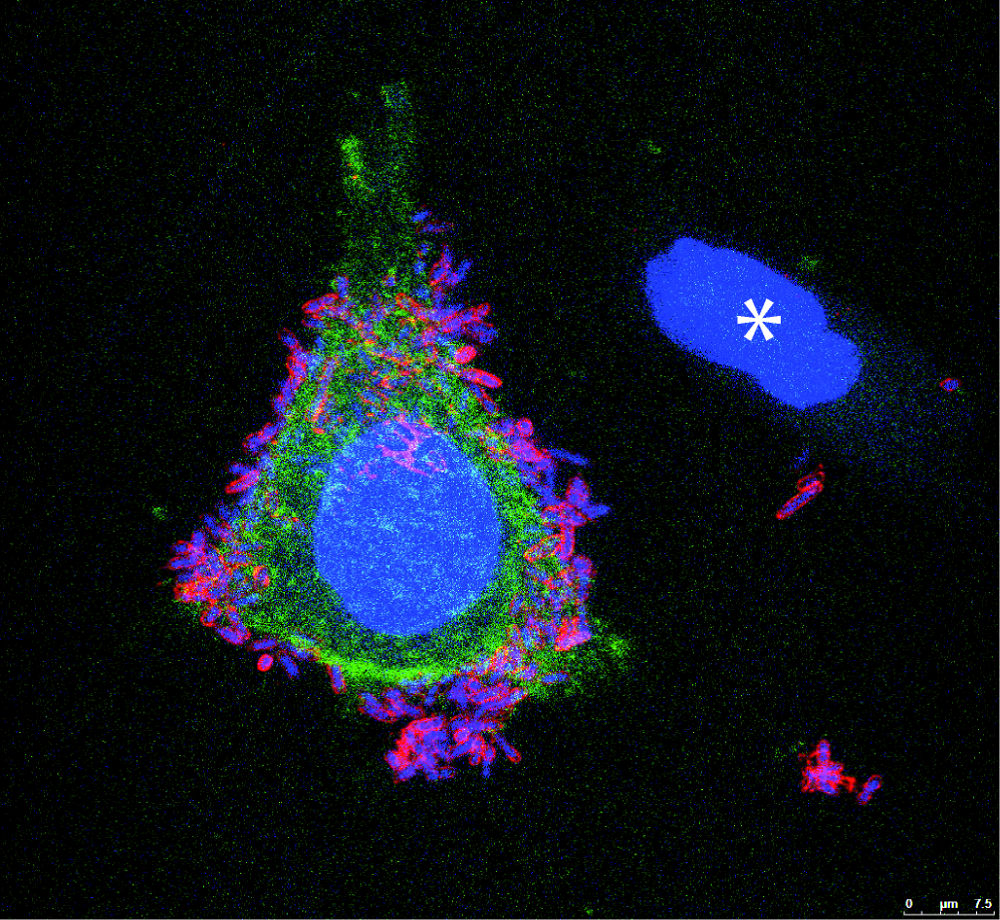
Research in the Department of Microbial Biotechnology is focused on microbes with environmental, industrial or clinical relevance. Work includes several approaches based on molecular genetics, systems and synthetic biology, genomics, proteomics and metagenomics. The scientific objectives of the department centre on five complementary aspects of microbial biology:
- Environmental microbiology. We aim to understand the regulatory mechanisms that govern the degradation of organic pollutants by analysing global regulation networks, which control the hierarchical assimilation of nutrients in complex environments. Understanding the overall regulation of bacterial metabolism will allow optimization of bioremediation strategies and industrially important biotransformation processes. Metagenomic approaches are used to evaluate the effect of natural ecosystems on the origin, enrichment and spread of antibiotic resistance, as well as on the role of waste treatment plants in alleviating this problem.
- Microbial pathogens. Efforts are directed to the host-pathogen interactions in infections caused by different types of pathogens. Basic processes of microbial physiology, such as cell division, which are relevant for infection and for defining antimicrobial targets, are studied as well.
- Microbial resistance to antibiotics and search for new antimicrobials. Work aims to define the mechanisms of bacterial resistance to antibiotics and the effect of acquiring such resistance on bacterial physiology (including virulence). In addition, we search for potential targets as a way to develop new antimicrobials.
- Microbial responses to hostile environments. The focus is on understanding bacterial responses to stressful environments, including general stress responses and specific responses to agents that cause DNA damage. We study how bacterial viruses and yeasts replicate their DNA and how bacteria repair DNA damage and promote segregation to improve genome stability. Novel DNA damage repair systems are currently being studied.
- Microbial engineering. The purpose is to generate bacterial strains optimized to obtain products of interest (recombinant antibodies, hydrolytic enzymes), or to detect and degrade pollutants. In addition, we engineer bacterial strains that attach to specific surfaces, including human cells expressing a surface antigen, a frequent situation in tumour cells that express proteins abnormally on the plasma membrane.
Head of Department: Luis Ángel Fernández-Herrero
OUR RESEARCH GROUPS:
Genetic stability. Juan C. Alonso and Silvia Ayora
Stress and bacterial evolution. Jesús Blázquez
Bacterial engineering for biomedical applications. Luis Á. Fernández-Herrero
Laboratory of Intracellular Bacterial Pathogens. Francisco García-del Portillo
Synthetic Bacterial Amyloids. Rafael Giraldo
Molecular infection biology. Daniel López
Ecology and evolution of antibiotic resistance. José Luis Martínez
Regulation of gene expression and metabolism in bacteria. Fernando Rojo
Plasmid Biology and Evolution. Álvaro San Millán
Junior Groups
Host-pathogen interactions in obligated intracellular bacteria. Damián Lobato-Márquez, Atracción de Talento Fellow
Evolution of microbes and mobile genetic elements. Alfonso Santos-López, Junior Leader La Caixa






